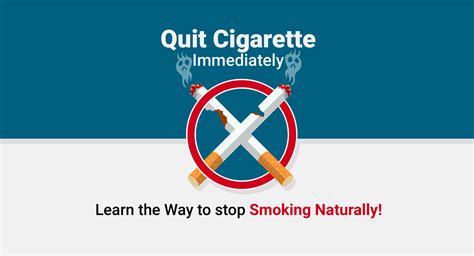Smoke Quit Smoking: Stop Addiction Now

The struggle to quit smoking is a daunting challenge for millions of people worldwide. Nicotine addiction is a powerful force, but it’s not invincible. With the right mindset, strategies, and support, you can overcome the habit and start living a healthier, smoke-free life. In this comprehensive guide, we’ll explore the reasons why quitting smoking is crucial, the benefits of stopping, and provide a step-by-step plan to help you overcome nicotine addiction.
Understanding Nicotine Addiction
Nicotine is a highly addictive substance found in tobacco products. When you smoke, nicotine is absorbed into your bloodstream, releasing feel-good chemicals like dopamine in your brain. This creates a temporary sense of pleasure and relaxation, making you want to smoke more. However, nicotine also increases your heart rate, blood pressure, and cardiovascular stress, putting you at risk for serious health problems.
The Risks of Smoking
Smoking is the leading cause of preventable deaths worldwide, accounting for over 7 million deaths each year. Tobacco use increases your risk of developing:
- Lung cancer
- Heart disease
- Stroke
- Chronic obstructive pulmonary disease (COPD)
- Emphysema
- Bronchitis
- Other respiratory problems
Smoking also affects your appearance, causing premature aging, yellowing teeth, and bad breath.
Benefits of Quitting Smoking
Quitting smoking has numerous benefits, including:
- Improved lung function and breathing
- Reduced risk of heart disease, stroke, and cancer
- Enhanced sense of taste and smell
- Fresher breath and cleaner teeth
- Improved skin health and appearance
- Increased energy levels
- Better overall health and well-being
Preparing to Quit
Before you start your quit journey, it’s essential to prepare yourself mentally and physically. Here are some steps to take:
- Set a quit date: Choose a specific date to quit smoking and mark it on your calendar.
- Get support: Share your decision with friends and family, and consider joining a support group or talking to a counselor.
- Identify your triggers: Make a list of situations, emotions, and people that make you want to smoke.
- Find healthy alternatives: Replace smoking with healthier habits, such as exercise, meditation, or hobbies.
- Get rid of smoking-related items: Dispose of lighters, ashtrays, and cigarettes to remove temptation.
It's essential to understand that quitting smoking is a process, and it's okay to take it one day at a time. Don't be too hard on yourself if you slip up – simply acknowledge the setback and continue working towards your goal.
Quit Smoking Strategies
Here are some effective strategies to help you quit smoking:
- Nicotine replacement therapy (NRT): Use gum, lozenges, patches, or inhalers to manage withdrawal symptoms.
- Prescription medications: Consult your doctor about medications like bupropion (Zyban) or varenicline (Chantix) to help reduce cravings.
- Counseling: Work with a counselor or therapist to address underlying issues and develop coping mechanisms.
- Support groups: Join a support group, either in-person or online, to connect with others who are going through similar experiences.
- Healthy habits: Engage in regular exercise, eat a balanced diet, and practice stress-reducing techniques like meditation or deep breathing.
Overcoming Challenges
Quitting smoking can be challenging, but it’s not impossible. Here are some tips to help you overcome common obstacles:
- Manage cravings: Use NRT, prescription medications, or healthy alternatives to manage cravings.
- Avoid triggers: Identify your triggers and develop strategies to avoid or cope with them.
- Stay positive: Focus on the benefits of quitting and celebrate your progress.
- Get enough sleep: Aim for 7-8 hours of sleep per night to help regulate cravings and mood.
Step-by-Step Quit Plan
- Set a quit date and prepare yourself mentally and physically
- Get support from friends, family, or a support group
- Identify your triggers and develop strategies to avoid or cope with them
- Use NRT, prescription medications, or healthy alternatives to manage cravings
- Stay positive and focus on the benefits of quitting
Frequently Asked Questions
What are the most effective ways to quit smoking?
+The most effective ways to quit smoking include a combination of NRT, prescription medications, counseling, and support groups. It's essential to find a quit plan that works for you and to be patient and persistent.
How long does it take to quit smoking?
+The quitting process can take several weeks to several months. It's essential to be patient and to focus on progress, not perfection. With the right mindset and support, you can overcome nicotine addiction and live a healthier, smoke-free life.
What are the benefits of quitting smoking?
+The benefits of quitting smoking include improved lung function, reduced risk of heart disease and cancer, and enhanced overall health and well-being. Quitting smoking can also improve your appearance, increase your energy levels, and reduce your risk of premature aging.
Quitting smoking is a journey, and it’s okay to take it one day at a time. With the right mindset, strategies, and support, you can overcome nicotine addiction and live a healthier, smoke-free life. Remember to stay positive, focus on the benefits of quitting, and be patient with yourself. You got this!



